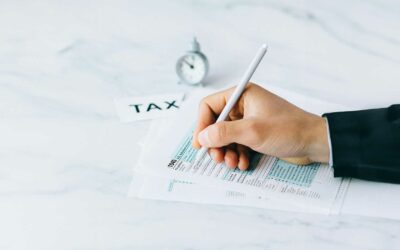Looking at tax in 2022
Tax can be difficult to understand, let alone pay. Not only are there many kinds of tax, from indirect taxes like VAT and excise duty to direct tax like income and capital gains, we don’t all pay at the same rate.
Thanks to allowances, which take into account our financial and to some extent personal circumstances, some of us will pay more tax than others. This means it can be surprisingly easy to pay too much tax.
At Continuum we are looking at why this means you need to look at your tax position in 2022.
The government needs your money
The costs of keeping the country running through covid were huge and inflation is expected to add to the Chancellor’s debt. The Office for Budget Responsibility has indicated that the treasury will need to find £45bn in interest, before even thinking about paying off the debt itself.
As taxpayers we will be providing the extra cash.
However, the Chancellor is not apparently increasing the rates of tax we pay. What he has done is freeze the thresholds at which basic and higher rates of income tax are paid from April 2022 to April 2026, effectively increasing the amount we actually pay as inflation pushes up earnings.
There will also be an additional 1.25% contribution added to both employee and employer National Insurance from April and a similar additional charge on dividends. This is referred to as the Health and Social Care Levy. From April 2023 it will be extended to employees above the state pension age.
More changes are coming
The changes will not end there. The Treasury has issued a raft of consultations which could all mean extra costs.
The Government announced last September that Making Tax Digital for income tax self-assessment would be delayed by a year and will not start until April 2024. The same applies to their controversial proposals on “basis period reform”, which would restrict the way income can be allocated to previous tax years and earlier tax payment dates for the self-employed.
But this is just a postponement, so those affected should take the opportunity to get ready well in advance.
There will be greater scrutiny if you are self-employed, or if you become a new landlord, with the onus on you to report your new venture even before it turns a taxable profit.
There could also be increasing pressure for ‘timely payment’ or in other words, collecting tax sooner. This is still just a consultation at this stage, but the government is understandably keen to raise funds sooner.
Some positive tax news?
There are some bright spots amongst treasury proposals.
The Government has accepted the recommendation of the Office of Tax Simplification that it is unreasonable to ask taxpayers selling residential property to report their gains to HMRC within 30 days, and the period has now doubled to 60 days.
The Government has also accepted another recommendation from the Office of Tax Simplification to extend pension tax relief for low earners caught under the “net pay” arrangement. Frustratingly it will not apply for pension contributions until April 2024.
What will it all mean to you?
These changes mean that it will be more important than ever to ensure that you are not paying too much tax – and there are two key areas to look at.
1. Are you claiming all your allowances?
Tax is complicated, and we may tend to simply rely on the taxman to tell us what we owe him. The fact is that he is only human and makes mistakes. In particular, he may have forgotten an allowance or two, particularly if your income has fluctuated over the past few months.
It can be well worth looking at your tax return. If you do find errors, there is a relatively simple way to query them. HMRC has a well developed and surprisingly efficient appeals system which you can find here.
2. Can you reduce your tax liabilities?
If you find that your current assessment is right, it might be time to take a more proactive approach to reducing your tax.
It could be time to:
- Maximise your pension contributions to make full use of tax relief
- Get a detailed pension forecast – to see the effect changes will have
- Make full use of your ISA entitlements
- Look at your investment portfolio
- Check any capital gains tax liabilities
These steps are all entirely legitimate, but the rules and regulations are complicated. Getting expert help may be vital.
The simplest way to get a tax expert working for you is to call us at Continuum. We can provide a full tax review which will help identify the marginal tax traps waiting for you – and help you to avoid them.
To find out more, simply contact us.
The information contained in this article is based on the opinion of Continuum and does not constitute financial advice or a recommendation to suitable retirement or investment or tax mitigation strategy, you should seek independent financial advice before embarking on any course of action.
The value of investments can fall as well as rise and you may get back less than you
The Levels, basis and reliefs from taxation are subject to change and depend upon your personal circumstances.
The Financial Conduct Authority does not regulate taxation advice.
https://www.telegraph.co.uk/tax/tax-hacks/changing-tax-year-date-disaster-waiting-happen/
https://www.telegraph.co.uk/tax/tax-hacks/rishi-sunaks-stealth-tax-raid-will-cost-us-21bn/



